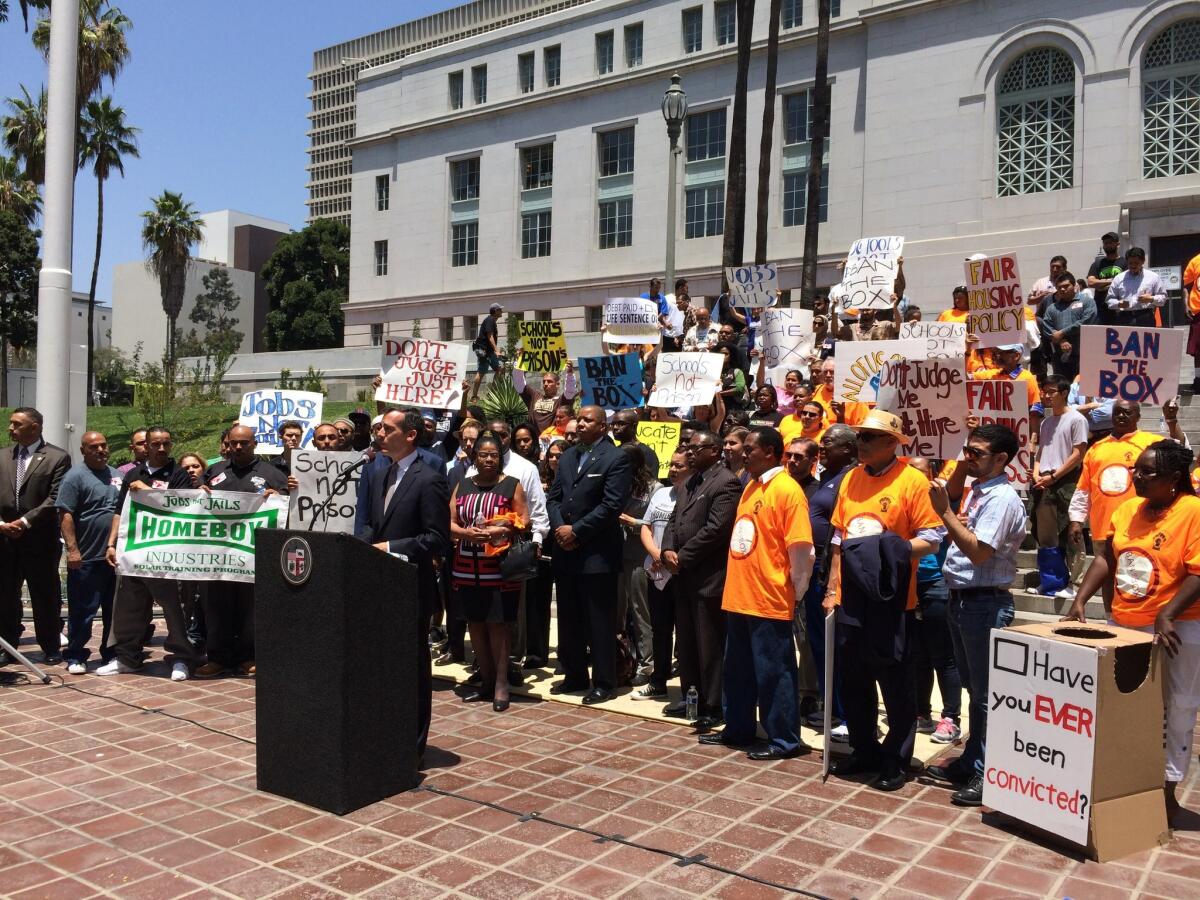L.A. leaders ask employers not to reject people with criminal records

- Share via
So people with criminal records are not automatically rejected when they apply for jobs, Los Angeles City Councilman Curren Price proposed Friday that employers be asked to conduct background checks only after a candidate has been found to be qualified.
Price said people who have had trouble with the law are often disqualified before they can even really begin the job application process. That makes it especially difficult for those who’ve been incarcerated to re-enter society.
Supporters of a national push known as “Ban the Box” -- referring to the box an applicant is usually asked to check if he or she have been convicted of a crime -- say that reducing barriers to employment will strengthen the economy and lower the recidivism rate.
Price filed a council motion, asking that the Legislative Analyst determine the city’s authority over employers.
“Los Angeles is the city of second chances,” Mayor Eric Garcetti said at a rally in support of Price’s motion. He said that prejudging applicants for jobs makes the playing field unequal and doesn’t allow people to “run their race” and succeed.
Garcetti said the motion addresses a big social and economic issue in Los Angeles, which has the highest per-capita number of parolees of any city in the country.
In California, one in four adults have either an arrest or a conviction on their record, said Michelle Natividad Rodriguez, an attorney at the National Employment Law Center.
“We’ve seen a cycle of recidivism that we all collectively must break. A good job does that,” the mayor said.
“For too many people, they start 40 yards behind, and we pretend that’s equality,” he said.
Price’s motion considers delaying background checks until the end of the interview process and limiting the use of background checks when people apply for housing.
“We’re going to be vigilant and proactive on the issue because it affects thousands,” Price said. “The movement to ban the box has begun to sweep the nation.”
Rodriguez said that 12 states and 70 cities and counties across the country have passed such an ordinance.
Los Angeles would become the biggest city to do so. The motion, called the Fair Chance Initiative, now moves to the council’s economic development committee.
Delvon Brown, 44, said he hasn’t been able to get a full-time job because of a felony conviction. Brown, who lives in Hyde Park, was never incarcerated but has been eliminated from job application processes after disclosing his conviction.
“It’s very frustrating,” he said.
Approximately 70 million people in the United States have a criminal record, according to Rodriguez.
She said that the barriers to employment for that population -- which has a 50% lower chance of finding a job -- brings down the country’s gross domestic product by $60 billion.
More to Read
Sign up for Essential California
The most important California stories and recommendations in your inbox every morning.
You may occasionally receive promotional content from the Los Angeles Times.














